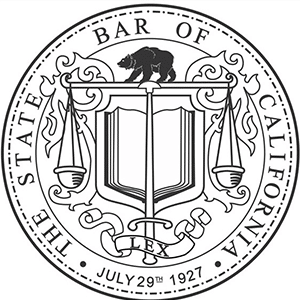Have a Quick Question? Check out our Videos; We Might Have Answered It!
You do not have to choose one or the other. In estate planning, it is best to cover all your bases. You can choose to have a Last Will and Testament (“Will”), a Revocable Living Trust (“RLT”), or both.
The Will allows you to specify how your assets will be distributed. For example, if you intend to leave your condominium unit to your eldest child, you can specify that in your Will. Your Will can also contain instructions and wishes regarding your funeral and burial.
A RLT, on the other hand, allows you to establish specific conditions regarding the transfer of your assets. For example, you can set up a Trust for your minor child, who will get an allowance of $2,000 each month until they complete their undergraduate education. However, you will have to transfer cash assets into the name of the Trust first.
Probate is a court proceeding where a Will’s authenticity will be validated. A judge will review the purported Will and ensure that it is indeed created by the testator (the person who died) and that the Will was prepared following the requisites provided by law.
In California, a Will must be signed by the testator, and there must be at least two witnesses for it to be valid. The signing must also be done in each other’s presence. The Will does not have to be notarized.
Probate is necessary if the decedent executed a Will. Probate may be required if the decedent passed without a Will.
If your Will applies to a given asset, then distribution of that asset to your intended heirs will be delayed by the probate process. Depending on what happens during the probate process, a given asset may not ultimately be distributed as you intended.
A RLT, however, does not have to be probated. Assets placed into a RLT therefore bypass probate, allowing them to be transferred to the intended beneficiary much more quickly and without interference—according to the terms of the Trust.
To fund a Trust is to place assets into that Trust. This is a step that needs to take place with assets after the Trust is drafted, and it causes the terms of the Trust to take effect upon a given asset. If you do not fund the Trust, then the terms you have drafted will not take effect upon the assets you have chosen for that Trust. It is therefore important to follow up and fund your Trust with the appropriate assets and the terms of the Trust in mind, according to your strategy and intentions.
There are many types of trusts, and they can be either revocable or irrevocable. While a revocable Trust is designed to allow you to modify the assets in the Trust after they have been placed in that Trust, an irrevocable Trust does not allow the grantor (the creator of the Trust) to have access to assets after they have been placed in the Trust. An RLT is revocable, allowing its assets to be modified or removed during the life of the grantor. An RLT becomes irrevocable upon the death of the grantor.
Yes. There is no minimum amount of assets required before anyone can make a Will. In order to create a Will in California, you must be 18 years of age and of “sound mind”.
Any prized possession can be designated to an heir or beneficiary through a will. For example, a treasured family heirloom and a toy or stamp collection can be bequeathed to a specific heir or beneficiary in your Will.
It is recommended you update your Will in certain instances to ensure your Will still reflects your wishes.
An example of an event that would require you to update your Will is the acquisition of new properties. You might also want to review your Will when there are changes in your family dynamics. This could be after having a new child, in the event of a divorce, or when there is a death in the family.
No. The executor of your Will does not have to be a relative or family member. Traditionally, most people choose a close family member to be their executor. However, choosing a trusted friend is also acceptable.
What becomes of your hard-earned property if you leave this world without a will? It's a question that might intrigue you. The answer, however, lies in the concept of intestacy.
Intestacy is a term that can significantly impact the distribution of your assets after your passing.
Intestacy, in simple terms, refers to the situation where a person passes away without a valid will. This can create a multitude of problems, as your wishes for the distribution of your property aren't legally documented. Without a clear will, your assets won't be divided according to your intentions, leading to complications that your loved ones must navigate during an already difficult time.
In California, when someone dies intestate (without a will), state laws dictate how their estate will be distributed. This distribution is governed by a set of rules known as intestate succession. In essence, intestate succession outlines a predetermined order in which family members inherit, prioritizing close relatives over distant ones.
However, relying on intestate succession can lead to issues. Your assets may not end up where you intended, and the process can be time-consuming, potentially causing strain among your loved ones.
Intestate succession is the legal process that governs how an estate is divided when the deceased didn't leave a will. In California, this process comes into play when the decedent (the person who passed away) owned property solely in their name, and no will or other valid document outlines how the assets should be distributed.
Moreover, when a will covers only a portion of an estate, it can occasionally lead to an intestate situation. In either of these scenarios, the assets of the deceased are commonly distributed by a probate court.
Intestate succession typically prioritizes the decedent's closest family members. Spouses, registered domestic partners, children, and grandchildren are among the first in line to inherit. If none of these relatives exist, the process extends to parents, siblings, nieces, nephews, and so on.
According to intestate succession laws:
It's important to note that not all property is subject to intestate succession. Assets that have beneficiary designations, such as life insurance policies or retirement accounts with named beneficiaries, won't be governed by intestacy laws. Additionally, properties held in joint tenancy or as community property with the right of survivorship will pass to the surviving joint owner or spouse outside of the intestate succession process.
Other examples include:
Here are answers to some commonly asked questions about intestate succession laws in California:
A: Children inherit the estate equally if there is no surviving spouse or registered domestic partner. If there is a surviving spouse or partner, the distribution depends on whether the children are also the spouse's or partner's children.
A: Yes, non-citizens can inherit an estate through intestate succession in California.
A: Yes, intestacy can be contested if there are legitimate reasons to believe that the decedent's wishes weren't accurately represented by intestate succession laws.
A: If someone dies while their divorce is pending, the distribution of assets may be complicated. It's advisable to seek legal assistance to navigate this situation properly.
Intestacy can give rise to a host of complex legal and emotional challenges. If you have a long-term domestic partner who has not been registered as such, they won’t receive any of your property at the event of your passing. If you have a thriving business but no specified heirs, that business could be passed on or divided among heirs who lack the expertise or interest to manage it, leading to operational chaos and potential financial decline. Many unwanted things could happen in intestacy.
This is why enlisting the expertise of an estate attorney is crucial when dealing with intestate estates. With their guidance, you can ensure that the estate is distributed efficiently, in line with the law, and in accordance with your wishes. An attorney can also help resolve any disputes that may arise among potential heirs, safeguarding your legacy and minimizing family conflicts.
Don't leave your estate's future to chance. Contact Anthoor Law Group today to schedule a consultation with our experienced estate planning attorneys. Let us guide you in building your estate plan to avoid intestacy, ensuring that your assets are managed as you intend and that your loved ones are protected during their time of grief. Your legacy deserves the careful attention and expertise that Anthoor Law Group provides.
When one has died intestate (without a will), the assets of the decedent will be distributed among the legal heirs. The preference, shares, and portions will be determined by the laws of the state.
In California, the laws of intestate succession are pretty straightforward. For instance, the assets would be divided among the decedent’s spouse and children, and their proportional shares would depend on the number of children.
If the decedent has no children, the assets will go to the surviving spouse. Without a spouse or child, the assets will go to the parents. If the parents are no longer around, the assets will go to the surviving siblings.
If the decedent has no legal heirs, the assets will be absorbed by the state (escheat).
If you have more questions about Wills, Trusts, or estate planning in general, call Anthoor Law Group at 510-794-2887 to book a consultation.












Anthoor Law Group, A Professional Corporation greatly appreciates your visiting our website. We hope the warmth, compassion, and competency of our firm has been conveyed to you. We look forward to meeting you and providing you with clarification on any family law or estate planning issues you are experiencing. Please reach out to us by phone at (510) 794-2887 or online form, and someone will be with you very soon!
Call (510) 794-2887 or fill out the short form below. We will usually respond within 1 business day but often do so the same day. Don’t hesitate, your questions are welcome.
We respect your privacy. The information you provide will be used to answer your questions or to schedule an appointment if requested.

Mon-Fri: 9am – 6:30pm
Anthoor Law Group, A Professional Corporation a law firm, is conveniently located in Fremont, California. We are committed to providing each of our clients with the highest quality of legal representation possible.
© Copyrights 2024. Anthoor Law Group, A Professional Corporation. All Rights Reserved.
Powered by Green Cardigan Marketing
The information you obtain at this site is not, nor is it intended to be, legal advice. You should consult an attorney for advice regarding your individual situation. Contacting us does not create an attorney-client relationship.